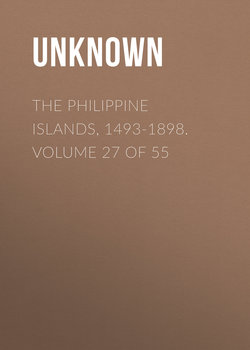Читать книгу The Philippine Islands, 1493-1898. Volume 27 of 55 - Unknown - Страница 31
На сайте Литреса книга снята с продажи.
Grau y Monfalcon’s Informatory Memorial of 1637
Number 24. Commerce of the Orient through the Arabian Gulf and other parts
ОглавлениеLater, the monarchy of the Persians having become extinct and ruined, a part of that commerce passed, on account of the division of the states and the increase of trade among the peoples, by way of the Red Sea to the Arabian Gulf. Then, entering by way of the two Arabias, the nations of Asia Minor snared the spices and drugs; and through Africa they went down by the river Nilo to Egipto, stopping now in Cayro by land, now in Alexandria by water. As the latter was a frequented port in the Mediterranean, the communication of that commerce was easy, almost without knowing from what beginnings it sprang. By that voyage, the commerce increased so greatly that the king Ptolomeo Auleta25 collected there as many as one thousand five hundred talents in duties: if these were Attic talents, they amounted to nine and one-half million Castilian escudos. The Romans came into the monarchy, and, having made Egipto a province of the empire, they enjoyed that commerce by way of the Arabian Gulf—by which the spice-trade penetrated at that time (even to the city of Arsinoe, or that of Berenice), and by the Nile, or went overland to Alexandria, which came to be one of the richest cities in the world because of this trade. Later, as the sultans of Babilonia went on gathering power, until they gained possession of the best part of Asia, the spice again came to have an exit more by way of Persia and Trapisonda [i.e., Trebizond] to the Caspian Sea, whence it was taken down to the ports of the Mediterranean, and in one or another place, was received by the merchants of Italia, who imparted it, in the utmost abundance, to Europa. In Asia Minor, the Ottoman house succeeded, and the Turks got control of that commerce, which they divided—directing it, through the cities of Juda and Meca, to the interior of their lands; and, by the gulf and port of Suez, to Alexandria.
25
Referring to Ptolemy Neus Dionysus, surnamed Auletes (“the Flute-player”), who ruled over Egypt from b. c. 80 to 51. One of his daughters was the famous Cleopatra VI, who so infatuated the Roman Cæsar and Antony.
